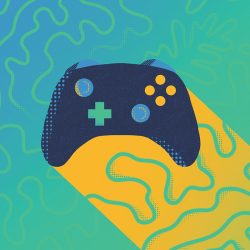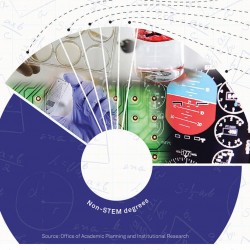Learning to Love the Chatbot
UW instructors look for upsides in controversial new artificial intelligence.
Last semester, the UW–Madison Teaching Academy convened instructors from across campus for an urgent chat. The topic: ChatGPT, a new artificial intelligence chatbot that has almost every industry — including higher ed — on edge. After all, it seems to know and do everything. It can compose a song or write an essay in seconds.
But if you were looking for alarm, the Teaching Academy’s virtual conversation was not the place. UW instructors are approaching the new technology with cautious optimism and an open mind about its potential in the classroom. Psychology professor and Teaching Academy cochair Morton Ann Gernsbacher kicked off the discussion with a reminder that technology-related moral panics in education, from pencil erasers to hand calculators to spell checkers, have rarely been worth the fuss.
OpenAI’s ChatGPT software is pretrained on a massive data set of existing text from the internet and uses it to predict an appropriate conversational response to any prompt. Instead of one million search-engine results, you get one answer. It’s not always right, but the algorithm is constantly improving with more data, development, and interactions. Microsoft and Google have since released their own rival chatbots.
UW instructors and students are already experimenting with the technology. Instructors can, for example, use ChatGPT to generate an insufficient answer to a problem and then invite students to critique it. A chatbot can also serve as the world’s most patient tutor for a student, allowing for endless follow-up questions.
Concerns about the technology range from lazy problem-solving to outright plagiarism. Teaching Academy cochair John Martin MS’04, PhD’09 is less concerned about the obvious cases — “A plagiarizer will always find a way to plagiarize,” he notes — than the passive ones.
“We talk a lot about the struggle of learning, of coming up with the wrong answer and figuring out why it’s wrong,” he says. “Learning from your mistakes is the heart of education. If we have a tool that just gives us the right answer, then what effect does that have on our ability to struggle through the problem space on our own?”
Published in the Summer 2023 issue




Comments
No comments posted yet.